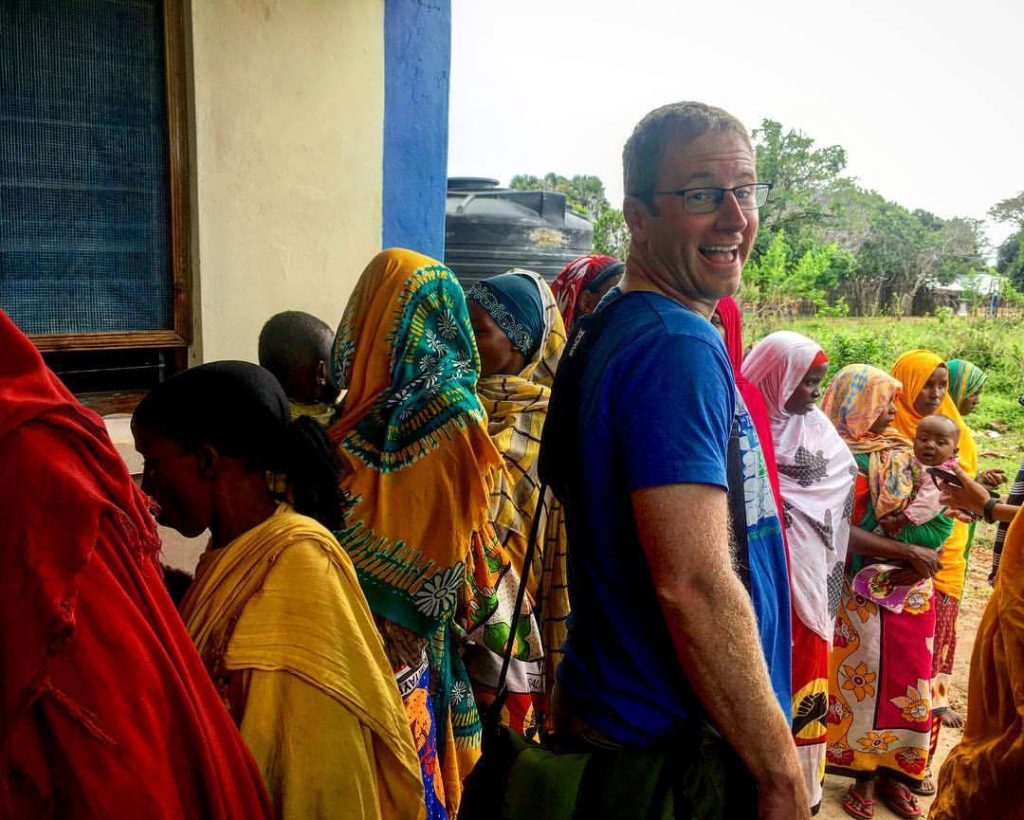(Kelsey researching his book in Kenya. Photo by Kelly Campbell of the Village Experience.)
I sent my friend, Rozy, in Nairobi $200. She was able to enroll in college.
$200 = college
I sent my friend Collins in Kenya $15. He sent me a note that he’d be able to eat for the month and focus on his studies.
$15 = a month of food
I’ve spent the last two years working on a book project (Where Am I Giving?) researching how to responsibly give our time, talent, and money to make the largest impact. Our donations can save and improve lives, so we should make them wisely. Sometimes when we donate to effective causes in places like Kenya our gift can make 100 times the impact as it can in the United States.
The entire time I was researching the book, a questions haunted me:
But why should I give to The Facing Project?
The nonprofit I co-founded seeks to create a more understanding and empathetic world through stories that inspire action. A community chooses a topic to face. Two people–writer and storyteller–have a chat and then collaborate on a monologue from the storyteller’s point of view. Stories are collected in a book, shared online, and performed on stage.
I give money and time to The Facing Project. And I’ve worked to encourage others to support the project as well. Was I redirecting life-changing funds to an organization that simply produced stories?
What good can a story do?
Turns out a hell of a lot of good.
I give to The Facing Project because it creates more givers, inspires people to volunteer, educates a community on the issues people face, and mobilizes them to more effectively address the issues in their own community.
A story doesn’t feed a hungry student, but The Facing Hunger project at Kansas State University led to the creation of a food pantry on campus that feeds many students.
A story makes an exponential impact. Our assessment has shown that 90% of those who participate in Facing Projects are likely to volunteer for one of the partner organizations running the project, 80% are likely to donate, and 70% would likely join the board if asked. Each community project involves 50 to 100 volunteers and reaches a much larger audience through books, performances, and outreach.
Facing Autism books have been used to train Indiana State Police on working with individuals with autism. Was a situation deescalated because an officer approached someone with more understanding? Was a life improved? Saved?
Facing Sex Trafficking stories were used in a kiosk at the Atlanta airport to educate flyers on how to identify someone being trafficked. Was a trafficker thwarted? Was a victim rescued?
Times these impacts by 75 projects, 1,500 stories, and 7,500 volunteers.
Roughly, we turn every $10 in donations into one story. And the impact of that story multiplies because…
Stories inspire people to give.
Stories inspire people to volunteer.
Stories inspire people and communities to act.
Each story shared ripples out from a conversation between two people to wash over many more.
—
I’d love if you considered joining me to support The Facing Project.


